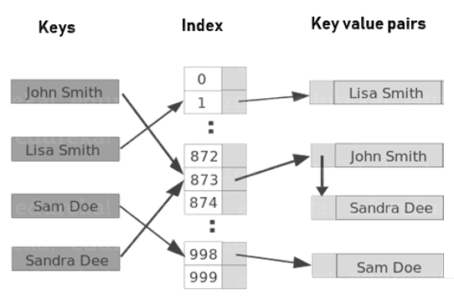Why Are Strings Immutable in Java? Enhancing Code Reliability
Why Are Strings Immutable in Java? Enhancing Code Reliability
Blog Article
What Is Immutable Strings and Exactly How It Functions
In the world of programs, recognizing the idea of unalterable strings is vital for producing robust and safe and secure applications. Unalterable strings refer to strings that can not be altered after they are created, making certain information honesty and predictability within the code.
The Basics of Unalterable Strings
Immutable strings, as a basic concept in programs, are personality sequences that can not be changed when they are developed. This indicates that once a string is appointed a worth, that value can not be altered. In languages like Python and Java, strings are immutable things, resulting in numerous implications in terms of memory administration and information stability.
One of the crucial benefits of unalterable strings is that they offer a complacency in information adjustment. Considering that the content of an unalterable string can not be modified, it makes sure that the original information stays intact, minimizing the risk of unplanned modifications during program implementation (Why are strings immutable in Java?). This property likewise streamlines debugging processes, as designers can rely on that as soon as a string is specified, its value will certainly not be inadvertently modified
Furthermore, immutable strings promote reliable memory use. When a new string is produced based upon an existing one, rather than modifying the original string, the brand-new worth is saved independently. This technique enhances efficiency by lowering memory fragmentation and simplifying memory allowance procedures. Overall, comprehending the essentials of unalterable strings is crucial for grasping programming concepts and optimizing code performance.
Advantages of Unalterable Strings
Building upon the protection and performance benefits of immutable strings, their benefits encompass enhancing code integrity and streamlining simultaneous shows jobs. By being unalterable, strings can not be changed after development, which gets rid of the danger of unplanned modifications in the data they store. This integral immutability guarantees that when a string is developed, its worth stays consistent throughout the program's implementation, lowering the chances of insects created by unforeseen modifications.
In addition, immutable strings contribute to code dependability by making it much easier to reason concerning the state of a program. Since strings can not be altered, developers can trust that a string will always hold the very same value, simplifying debugging and upkeep efforts. This predictability brings about more steady and dependable codebases.
Implementation in Programs Languages
Within different shows languages, the consolidation of immutable strings is a fundamental aspect that affects just how information is managed and adjusted within code frameworks. The application of unalterable strings varies across different shows languages, with each language offering its own mechanisms to sustain this concept.
In comparison, languages like C and C++ do not have integrated support for unalterable strings. Developers in these languages must manually implement immutability by implementing rules within their code to stop direct adjustments to string items.
Ideal Practices for Collaborating With Unalterable Strings
When handling unalterable strings in programs languages like Java and Python, sticking to finest methods makes sure effective and safe information adjustment. One of the crucial best techniques is to utilize StringBuilder or StringBuffer rather than directly manipulating strings, specifically when managing extensive concatenation operations. These classes give mutable alternatives for more info here string control, helping to prevent unneeded memory allocations and boosting performance.
An additional best method is to make use of string interpolation or format functions supplied by the language rather than hands-on concatenation. This not just boosts readability but likewise help in protecting against usual mistakes such as unintentional string alterations. Furthermore, when working with delicate information such as passwords or API tricks, it is vital to avoid storing them as plain text in unalterable strings. Making use of safe storage space devices like char ranges or specialized libraries for managing sensitive info helps reduce protection dangers related to immutable strings.
Real-world Applications and Instances
Checking out practical executions of immutable strings in various industries exposes their considerable impact on information integrity and system dependability. In the medical care sector, unalterable strings play an important role in making sure the safety and security and privacy of individual information. By avoiding unapproved alterations to sensitive info such as clinical documents and prescriptions, immutable strings help keep compliance with stringent personal privacy guidelines like HIPAA.
Banks likewise benefit from the unalterable nature of strings to enhance the protection of consumer data and purchase documents. Unalterable strings aid avoid fraud and unauthorized changes to monetary details, giving a robust protection versus cyber hazards and making certain the count on and self-confidence of clients.

Conclusion
Best practices for functioning with immutable strings include staying clear of direct adjustments and making use of approaches that return new string items. Real-world applications of unalterable strings consist of information encryption, caching, and string manipulation jobs.
Unalterable strings refer to strings that can not be changed after they are developed, making certain information integrity and predictability within the code. When a new string check my reference is created based on an existing one, rather than changing the initial string, the new worth is kept independently.In languages like Java and Python, strings are immutable by default, meaning that as soon as a string object is produced, its value can not be altered - Why are strings immutable in Java?. Ideal techniques for functioning with immutable strings consist of staying clear of straight alterations and utilizing approaches that return new string objects. Real-world applications of immutable strings include information security, caching, and string manipulation tasks
Report this page